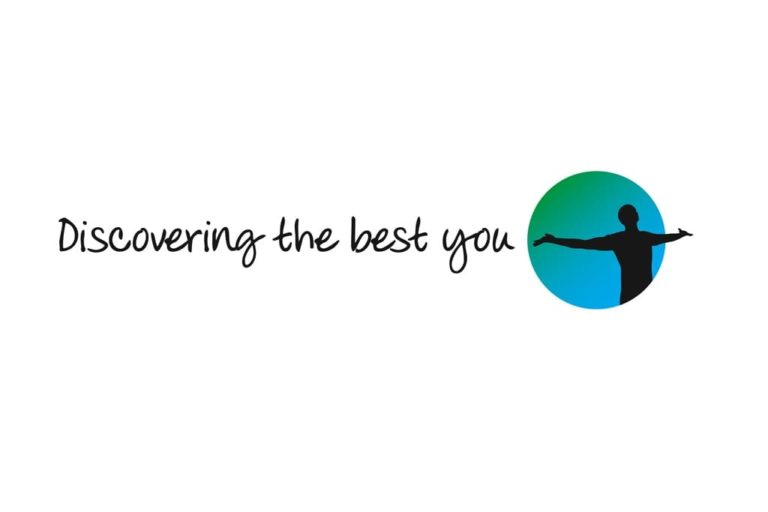MENTAL HEALTH
Happy End of 2020 and Welcome to 2021

WORDS: Alistair Mitchell PHOTOGRAPHY
A new year always comes with New Year’s resolutions and amazing intentions. Maybe you plan to ring in 2020 with a new deep resolve to quit smoking, lose weight, exercise more, not sweat the small stuff. And maybe these resolutions sound familiar — maybe just like the ones you made a year ago!
So how can you ensure that your determination to get healthier in 2020 sticks around past Australia Day?
By creating new habits.
Creating new habits takes time and energy. A new behaviour won’t become automatic overnight, but you may enjoy some of its benefits fairly quickly. Also, as you start to take walks regularly or engage in stress-soothing practices frequently, you’ll find you won’t feel quite right if you stop. That’s a great incentive to continue. So, keep nudging yourself in the direction you’d like to go. And try the following seven tips to help you create long-lasting change.
Dream big. Audacious goals are compelling. Want to compete in a marathon or triathlon? Lose 50 pounds or just enough to fit into clothes you once loved? With perseverance, encouragement, and support, you can do it. An ambitious aim often inspires others around you. Many will cheer you on. Some will be happy to help in practical ways, such as by training with you or taking on tasks you normally handle in order to free up your time.
Break big dreams into small-enough steps. Now think tiny. Small steps move you forward to your ultimate goal. Look for sure-fire bets. Just getting to first base can build your confidence to tackle — and succeed at — more difficult tasks. Don’t disdain easy choices. If you start every plan with “Make list,” you’re guaranteed to check one box off quickly. That’s no joke: a study on loyalty programs that aim to motivate consumers found giving people two free punches on a frequent-buyer card encouraged repeat business. So break hard jobs down into smaller line items, and enjoy breezing through the easy tasks first.
Understand why you shouldn’t make a change. That’s right. Until you grasp why you’re sticking like a burr to old habits and routines, it may be hard to muster enough energy and will to take a hard left toward change. Unhealthy behaviours like overeating and smoking have immediate, pleasurable payoffs as well as costs. So, when you’re considering a change, take time to think it through. You boost your chance of success when the balance of pluses and minuses tips enough to make adopting a new behaviour more attractive than standing in place. Engaging in enjoyable aspects of an unhealthy behaviour, without the behaviour itself, helps too. For example, if you enjoy taking a break while having a smoke, take the break and enjoy it, but find healthier ways to do so. Otherwise, you’re working against a headwind and are less likely to experience lasting success.
Commit yourself. Make yourself accountable through a written or verbal promise to people you don’t want to let down. That will encourage you to slog through tough spots. One intrepid soul created a Facebook page devoted to her goals for weight loss. You can make a less public promise to your partner or child, a teacher, doctor, boss, or friends. Want more support? Post your promise on Facebook, tweet it to your followers, or seek out folks with like-minded goals online.
Give yourself a medal. Don’t wait to call yourself a winner until you’ve pounded through the last mile of your big dream marathon or lost every unwanted ounce. Health changes are often incremental. Encourage yourself to keep at it by pausing to acknowledge success as you tick off small and big steps en route to a goal. Blast your favourite tune each time you reach 5,000 steps. Get a pat on the back from your coach or spouse. Ask family and friends to cheer you on. Look for an online support group.
Learn from the past. Any time you fail to make a change, consider it a step toward your goal. Why? Because each sincere attempt represents a lesson learned. When you hit a snag, take a moment to think about what did and didn’t work. Maybe you took on too big a challenge? If so, scale back to a less ambitious challenge, or break the big one into tinier steps. If nailing down 30 consecutive minutes to exercise never seems to work on busy days, break that down by aiming for three 10-minute walks — one before work, one during lunch, one after work — or a 20-minute walk at lunch plus a 10-minute mix of marching, stair climbing, and jumping rope or similar activities slipped into your TV schedule.
Give thanks for what you do. Forget perfection. Set your sights on finishing that marathon, not on running it. If you compete to complete, you’ll be a winner even if you wind up walking as much as you run. With exercise — and so many other goals we set — you’ll benefit even when doing less than you’d like to do. Any activity is always better than none. If your goal for Tuesday is a 30-minute workout at the gym, but you only squeeze in 10 minutes, feel grateful for that. It’s enough. Maybe tomorrow will be better.
NEW YEAR NEW IDEA
TURN UP THE VOLUME ON YOUR INTUITION SO, YOU CAN LISTEN TO YOUR INNER VOICE
1. Create space for your inner voice to come through
“One of the reasons why people aren’t hearing their intuition or trusting it or following through on it is because there is no space for it to come in,” Dittmar says. The solution? More quiet time.
2. Pay attention to your emotions
Although we refer to it as an “inner voice,” your intuition might not manifest itself as a voice at all. It might just be a feeling. “Intuition often comes through your emotions,” “Your emotions are simply feedback. It’s a part of you attempting to get your attention.”
So, when emotions bubble up, don’t shrug them off or feel guilty for having them. Instead, try to decipher what the emotion is really trying to tell you. You can even have a conversation with the emotion.
Also, pay attention to any bodily sensations like digestive issues, a lingering cough, a headache, or fatigue. All of these can also be ways that your inner guidance system is trying to tell you something.
3. Look for your inner voice patterns
Whether you realize it or not, your inner voice has a pattern. It will usually speak to you in similar ways so that you can learn to tune into it. “It’s about cultivating a new relationship with that intuitive voice”. “Similar to any other relationship, you have to get to know it. You have to understand how it sounds and the things that it says.”
To strengthen your intuitive muscle, I recommend a simple exercise. It involves taking a look back at your life and collecting some intuition data, if you will. Notice how your intuition has popped up for you in the past by remembering a time where you felt pulled to do something for no logical reason. Maybe you had an inner knowing that you shouldn’t attend a party and later found out some drama went down. Or, maybe you had a gut feeling to not work with a certain person and didn’t listen to it and it turned into a big headache. Make a note of how it felt to receive that intuitive hit and whether or not you followed through with it and what the outcome was.
Your notes are literal proof of how intelligent and all-knowing your inner voice is. For some people, it’s really helpful to see the data right to really believe in the power of intuition.
4. Set the intention to tune into your inner voice
Learning how to listen to your inner voice can be as simple as setting the intention every day to tap into it. “It’s like you plant a seed in the garden and it will start to naturally grow,”. That willingness to listen to it is sometimes all you need to awaken your awareness of your inner voice.
5. Don’t let your mind take over
Many of us are so conditioned to go straight to our heads when we’re looking for answers. In our minds, it makes more sense to make a decision or choose our life path from a logical perspective instead of going with our gut and what feels right.
The problem is there are so many voices swirling around in our head, which makes it difficult to know which one is actually our intuition. Your mind, your fear, and your intuition are all battling for your attention. It’s this noise that creates confusion and prevents us from following through on what our inner voice tells us to do.
Pro tip: Pay attention to the first answer that comes through when you’re making a decision. That’s usually your inner voice talking before your mind has had time to actually process it.
6. Take a moment to pause and breathe into it
If you need to make a decision in the moment but can’t figure out what to do, I suggest doing an easy breathwork exercise. You simply breathe in through your nose for four counts, hold for seven counts, and then exhale out of your mouth for eight counts. You can take three of these breaths and then just sit in that space.
“It brings some clarity and washes out the cobwebs and the fog in the mind,”. Yes this may sound all fluffy and weird but “When you exhale out of your mouth, it connects you to your heart and your lower chakras. That’s really where you want to connect to when you’re in a state of confusion, not the mind.”
You can also use your hands to help you connect even deeper. Just put your left hand on your stomach and your right hand on your heart. “The left side allows you to connect to your gut and intuition. Your right hand is associated with logic and the mind. So when you bring the right hand to the heart, it connects you to what is the truth.”
7. Talk to your confusion
Can’t hear your inner voice? Ask it to speak up. Start by pinpointing where you feel the confusion in your body; this helps separate yourself from the feeling. Maybe it’s tension in your shoulders or pressure in your head. “This starts to create that space between your higher self and the confusion. The confusion is not who you are.”
Imagine you’re talking to your confusion as if it were a person in front of you and ask it, essentially, what’s up. Listen to what it tells you. The response might be that you’re just too tired to go to that event or you don’t feel like that decision supports your highest evolution. By giving yourself the time and space to just have the conversation, you’re giving your inner voice more power.










